Shop 3-MeO-PCP Online
$65.00 – $2,500.00Price range: $65.00 through $2,500.00
3-MeO-PCP Cas Number; 91164-58-8
Molecular Formula; C18H27NO
We ship worldwide
Shop 3-MeO-PCP (3-Methoxyphencyclidine) Online|Purchase 3-MeO-PCP (3-Methoxyphencyclidine) Online|3-MeO-PCP (3-Methoxyphencyclidine) For Sale Online
Shop 3-MeO-PCP Online, short for 3-Methoxyphencyclidine, is a dissociative anesthetic belonging to the arylcyclohexylamine class. It is structurally related to PCP (Phencyclidine) and has gained popularity in the research chemical market for its unique dissociative effects. This comprehensive guide provides detailed insights into 3-MeO-PCP, including its chemical structure, effects, uses, risks, and legal status, making it an essential read for those interested in this compound. 4-MeO-PCP Crystal For Sale Online
What is 3-MeO-PCP?
Chemical Composition and Structure
3-MeO-PCP, or 3-Methoxyphencyclidine, has the molecular formula C18H27NO. Its structure consists of a phenyl ring attached to a piperidine ring via a cyclohexyl group, with a methoxy group (-OCH3) attached to the third carbon of the phenyl ring. This structural modification differentiates it from its parent compound, PCP, and gives it unique pharmacological properties. Buy 3-MeO-PCP USA
History and Development
3-MeO-PCP was first synthesized in 1979 by a team of researchers led by Victor Maddox. Initially, it was studied for its potential use as an anesthetic and for its psychoactive effects. However, it wasn’t until the early 2000s that 3-MeO-PCP emerged in the recreational drug market. Its availability through online research chemical vendors has since made it a subject of interest among users and researchers alike.
Effects of 3-MeO-PCP
Psychoactive Effects
3-MeO-PCP is known for its potent dissociative and hallucinogenic effects. Users often report a range of psychoactive effects, including:
- Dissociation: A feeling of detachment from reality, body, and surroundings, often described as an “out-of-body” experience.
- Euphoria: Intense feelings of happiness and well-being.
- Altered Perception: Changes in sensory perception, including visual and auditory distortions.
- Cognitive Euphoria: Enhanced thinking processes, creativity, and abstract thought.
Physical Effects
In addition to its psychoactive properties, 3-MeO-PCP can cause various physical effects, such as:
- Numbness: Reduced sensitivity to pain and physical sensations.
- Coordination Issues: Difficulty with motor control and balance.
- Analgesia: Pain relief due to its anesthetic properties.
- Tachycardia: Increased heart rate and elevated blood pressure.
Duration of Effects
The onset of 3-MeO-PCP’s effects typically occurs within 30-60 minutes of ingestion, with peak effects lasting 4-8 hours. The total duration of effects can extend up to 24 hours, depending on the dose and method of administration.
Uses of 3-MeO-PCP
Recreational Use
3-MeO-PCP is primarily used recreationally for its dissociative and euphoric effects. Users seek its unique ability to alter perception, enhance creativity, and provide profound dissociative experiences. It is often taken orally, insufflated, or injected.
Research and Clinical Interest
While primarily known for recreational use, 3-MeO-PCP has also attracted interest in research settings. Scientists study its pharmacological profile, receptor binding affinities, and potential therapeutic applications, such as its use as an anesthetic or in the treatment of certain psychiatric conditions. However, its high abuse potential and associated risks limit its clinical use.
Risks and Side Effects of 3-MeO-PCP
Short-Term Risks
The use of 3-MeO-PCP carries several short-term risks, especially at high doses or in uncontrolled settings. These risks include:
- Paranoia and Anxiety: Intense feelings of paranoia and anxiety can occur, particularly at high doses.
- Delirium: Severe confusion and disorientation.
- Motor Impairment: Difficulty with coordination and balance, increasing the risk of accidents.
- Hypertension: Elevated blood pressure and heart rate.
Long-Term Risks
Prolonged use of 3-MeO-PCP can result in several long-term health issues, including:
- Psychological Dependence: Users may develop a psychological dependence on 3-MeO-PCP, seeking its effects compulsively.
- Cognitive Impairment: Long-term use can impair cognitive function, including memory and concentration.
- Mental Health Disorders: Prolonged use can contribute to mental health disorders such as depression, anxiety, and psychosis.
- Bladder and Kidney Issues: Similar to other dissociatives, there is a potential for bladder and kidney problems with long-term use.
Interactions with Other Substances
3-MeO-PCP can interact dangerously with other substances, particularly other dissociatives, stimulants, and depressants. Combining 3-MeO-PCP with other psychoactive substances can increase the risk of adverse effects, including severe anxiety, paranoia, and cardiovascular strain.
Legal Status of 3-MeO-PCP
International Regulations
The legal status of 3-MeO-PCP varies worldwide. In many countries, it is classified as a controlled substance, making its manufacture, distribution, and possession illegal. However, in some regions, it remains unregulated, leading to its availability on the grey market.
United States
In the United States, 3-MeO-PCP is not explicitly listed as a controlled substance under the Controlled Substances Act. However, it could be considered an analogue of PCP, making it subject to the Federal Analogue Act, which allows for the prosecution of substances similar in structure and effect to controlled substances.
Europe
In Europe, several countries, including the United Kingdom and Germany, have classified 3-MeO-PCP as a controlled substance. The European Union has also implemented regulations to control its distribution and use.
Other Regions
The legal status of 3-MeO-PCP varies in other regions, with some countries adopting strict prohibitions and others lacking specific regulations. It is essential to research and understand the legal status of 3-MeO-PCP in your region before use.
Safe Use and Harm Reduction
Dosage Guidelines
To minimize risks, it is crucial to adhere to safe dosage guidelines when using 3-MeO-PCP. For new users, a very low dose is recommended to gauge sensitivity, as 3-MeO-PCP is highly potent. Even experienced users should exercise caution and avoid high doses.
Setting and Environment
Using 3-MeO-PCP in a safe, controlled environment can enhance the experience and reduce risks. A familiar setting with trusted friends or a trip sitter can provide support if needed. Avoid using 3-MeO-PCP in unfamiliar or risky environments.
Hydration and Nutrition
Staying hydrated and maintaining proper nutrition can help mitigate some physical side effects of 3-MeO-PCP, such as dry mouth and nausea. Light snacks and plenty of water are recommended.
Avoid Mixing with Other Substances
To minimize the risk of dangerous interactions, avoid mixing 3-MeO-PCP with other substances, particularly dissociatives, stimulants, and depressants. Combining 3-MeO-PCP with other psychoactive substances can increase the risk of adverse effects.
Recognize and Respond to Overdose
Recognizing the signs of a 3-MeO-PCP overdose, such as severe paranoia, tachycardia, and psychotic episodes, is crucial. In the event of an overdose, seek immediate medical attention and provide supportive care until help arrives.
Research and Future Directions
Clinical Studies
While recreational use of 3-MeO-PCP is widespread, clinical studies on its therapeutic potential are limited. Research is needed to explore its efficacy and safety in treating conditions like chronic pain, anxiety, and other medical conditions.
Legal and Regulatory Changes
As our understanding of 3-MeO-PCP evolves, changes in its legal and regulatory status may occur. Ongoing research and advocacy could influence policy decisions, potentially leading to the development of safe, controlled uses of 3-MeO-PCP in medical settings.
Public Health Initiatives
Public health initiatives focused on education and harm reduction can help mitigate the risks associated with 3-MeO-PCP use. Providing accurate information and resources to users can promote safer practices and reduce the incidence of adverse effects.
Conclusion
3-MeO-PCP (3-Methoxyphencyclidine) is a powerful dissociative anesthetic with intense psychoactive properties. While it offers potential benefits, particularly in research settings, it also carries significant risks. Understanding the effects, safe use practices, and legal considerations of 3-MeO-PCP is essential for those interested in this substance. As research continues to uncover its potential and risks, responsible use and harm reduction remain paramount.
FAQs about 3-MeO-PCP (3-Methoxyphencyclidine)
What are the signs of a 3-MeO-PCP overdose?
Signs of a 3-MeO-PCP overdose include severe paranoia, tachycardia, nausea, vomiting, and psychotic episodes. If you suspect an overdose, seek medical attention immediately.
Can 3-MeO-PCP cause long-term brain damage?
Prolonged use of 3-MeO-PCP can impair cognitive function and may contribute to long-term psychological issues. Chronic use is associated with various cognitive and psychological problems.
Is 3-MeO-PCP addictive?
3-MeO-PCP can be psychologically addictive, leading to compulsive use and dependence. Users may develop a tolerance, requiring higher doses to achieve the desired effects, which increases the risk of adverse outcomes.
How does 3-MeO-PCP compare to other dissociatives?
3-MeO-PCP is known for its high potency and intense dissociative effects, making it more potent than many other dissociatives. It is similar to other compounds in the arylcyclohexylamine class but has distinct pharmacological properties.
What should I do if I experience a bad trip on 3-MeO-PCP?
If you experience a bad trip on 3-MeO-PCP, try to stay calm and remember that the effects are temporary. Seek support from a trusted friend or trip sitter, change your environment, and practice deep breathing exercises.
How can I reduce the risks associated with 3-MeO-PCP use?
To reduce the risks associated with 3-MeO-PCP use, follow these harm reduction tips: adhere to safe dosage guidelines, use in a controlled environment, stay hydrated and nourished, avoid mixing with other substances, and recognize the signs of overdose.
Are there any therapeutic uses for 3-MeO-PCP?
While 3-MeO-PCP is primarily known for recreational use, research is ongoing to explore its potential therapeutic applications. However, its high abuse potential and associated risks limit its clinical use at this time.
What is the legal status of 3-MeO-PCP in my country?
The legal status of 3-MeO-PCP varies worldwide. It is essential to research and understand the specific regulations in your country or region before use. In many places, it is classified as a controlled substance, making its manufacture, distribution, and possession illegal.
Can 3-MeO-PCP be detected in drug tests?
3-MeO-PCP may not be detected in standard drug tests. However, specialized tests can identify its presence. If you are concerned about drug testing, it is crucial to consider this before using 3-MeO-PCP.
How should I store 3-MeO-PCP to ensure its stability?
To ensure the stability of 3-MeO-PCP, store it in a cool, dry place away from direct sunlight and moisture. Proper storage can help maintain its potency and prevent degradation over time.
By understanding the intricacies of 3-MeO-PCP, including its effects, risks, and legal status, users and researchers can make informed decisions about its use. Responsible use, harm reduction practices, and staying informed about the latest research and regulations are crucial for navigating the complexities of this powerful dissociative substance.
| Qty/Price | 2g, 5g, 10g, 25g, 50g, 100g, 250, 500g, 1kg |
|---|
Be the first to review “Shop 3-MeO-PCP Online” Cancel reply
Related products
Buy Research Chemicals
Buy Research Chemicals
Buy Research Chemicals
Buy Research Chemicals
Buy Research Chemicals
Buy Research Chemicals
Buy Research Chemicals
Buy Research Chemicals





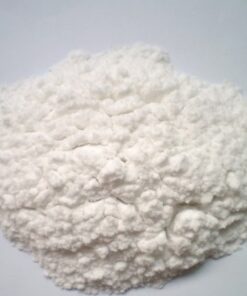

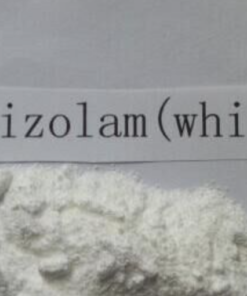
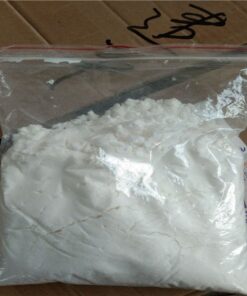


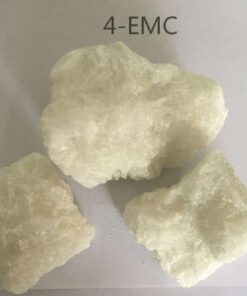

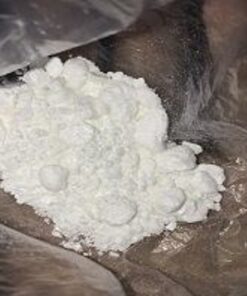


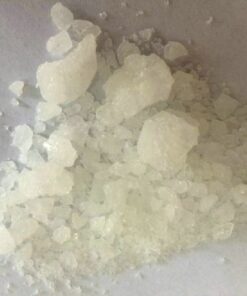


Reviews
There are no reviews yet.